134 Results
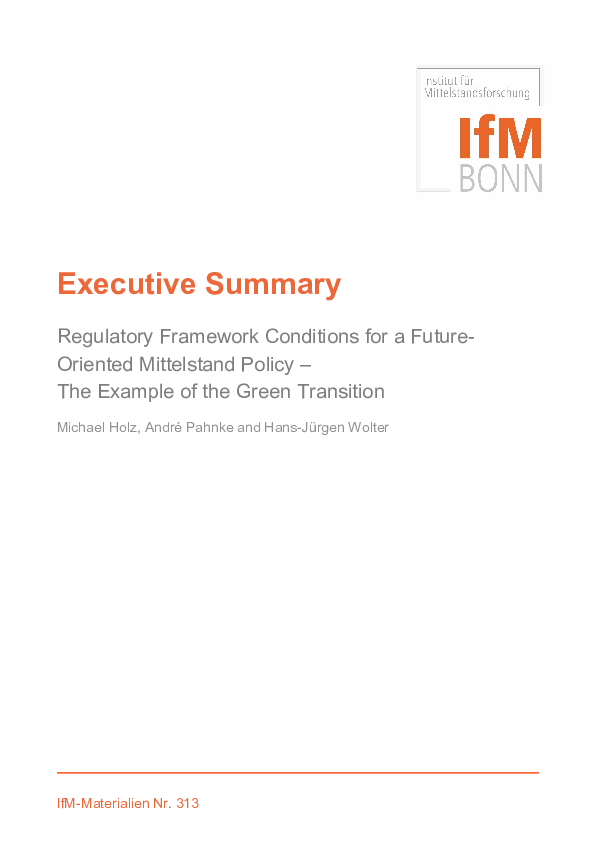
IfM-Materialien | 2025 Regulatory Framework Conditions for a Future-Oriented Mittelstand Policy
The framework conditions for the green transition should allow for individual, flexible solutions. In order not to place an excessive burden on Mittelstand enterprises, restrictive commands, prohibitions and reporting requirements should be avoided as far as possible.

IfM-Materialien | 2025 Self-employed craftswomen as (expectant) mothers – results of a survey conducted across North Rhine-Westphalia
This study analyses the professional and operational consequences of pregnancy and maternity for self-employed craftswomen in North Rhine-Westphalia.
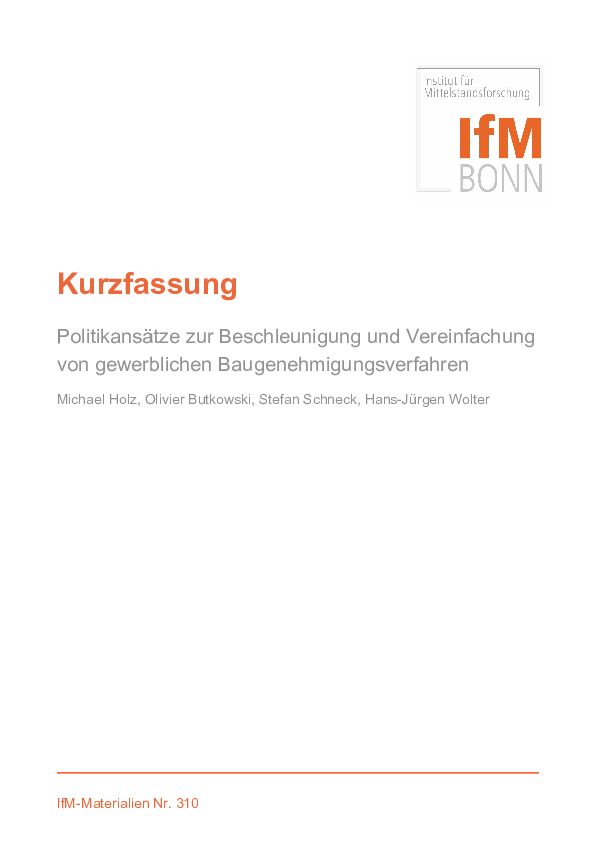
IfM-Materialien | 2025 Policy approaches to speed up and simplify commercial building permit procedures
Even though the building permit process can vary greatly from case to case, its length and complexity is often perceived by companies as a burden and an obstacle to investment.
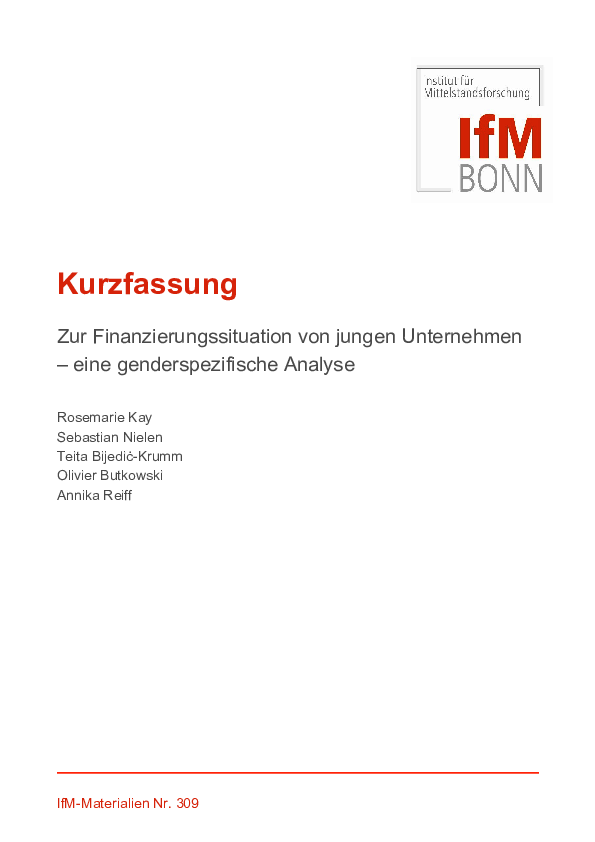
IfM-Materialien | 2025 The financing situation of young businesses - a gender specific analysis
The authors analyse in their publication the question, if the use of some sources of financing depends on whether the management of a young business is female.
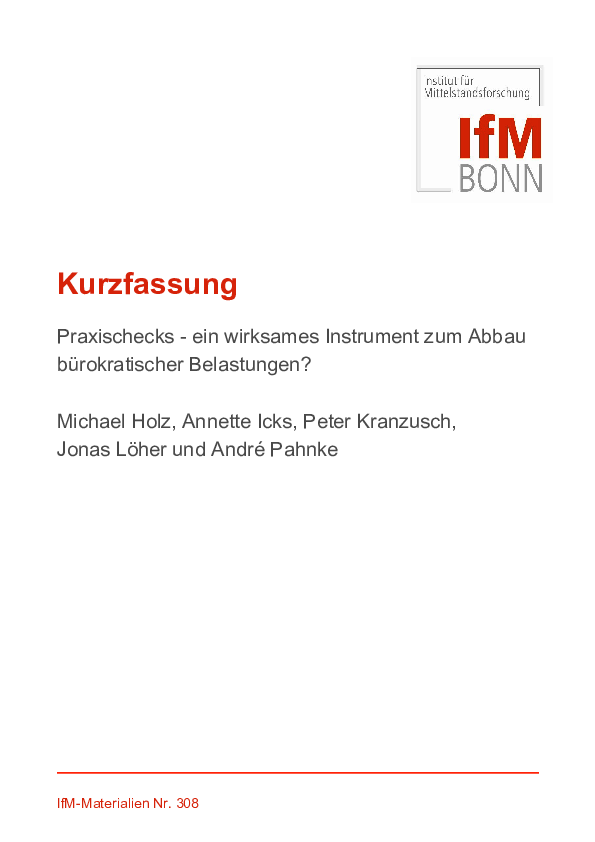
IfM-Materialien | 2025 Practice checks - an effective instrument for reducing bureaucratic burdens?
Companies have long complained about many regulations' lack of proportionality and practicability.
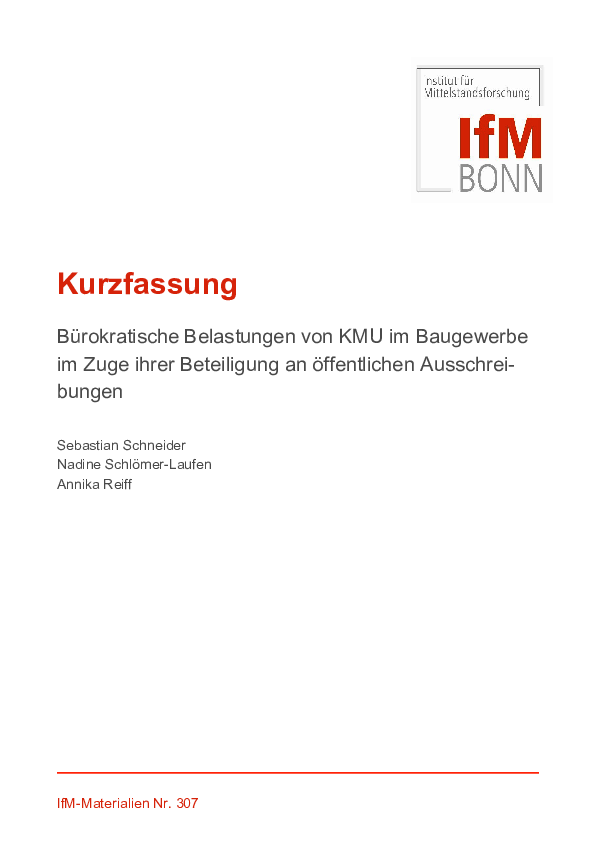
IfM-Materialien | 2024 The bureaucratic barriers for SMEs in the construction sector as a result of their participation in public procurement
Participation in public tenders at municipal level is associated with bureaucratic burdens.
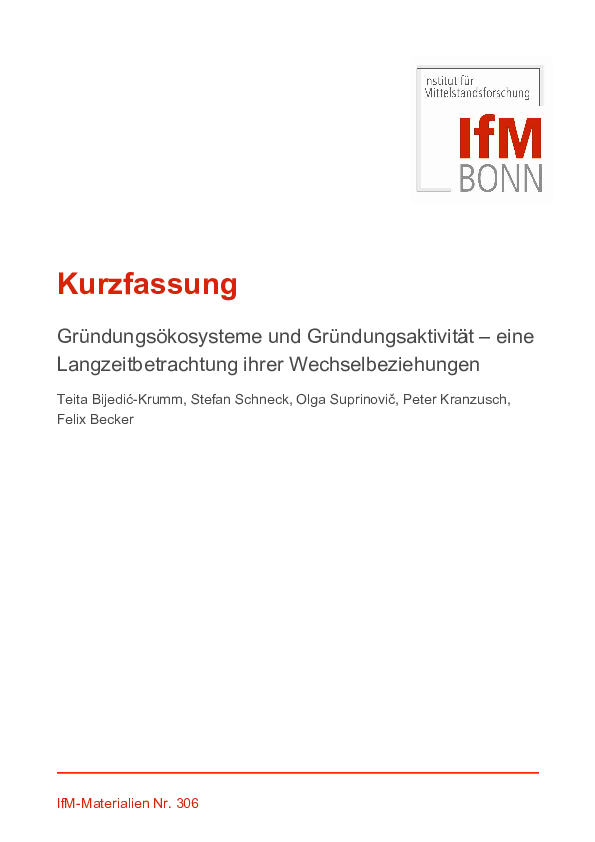
IfM-Materialien | 2024 Entrepreneurial ecosystems and start-up activity – a long-term analysis of their interrelationships
Supporting start-up activity is a central goal of regional economic policy. The focus here is on regional start-up ecosystems, which combine many potential influencing factors.

IfM-Materialien | 2024 Effects of institutional framework conditions and resource availability on the gender gap in self-employment – a systematic literature analysis
This study uses a systematic literature review of international publications to examine the effects of institutional framework conditions and the availability of resources on the gender gap in entrepreneurship.
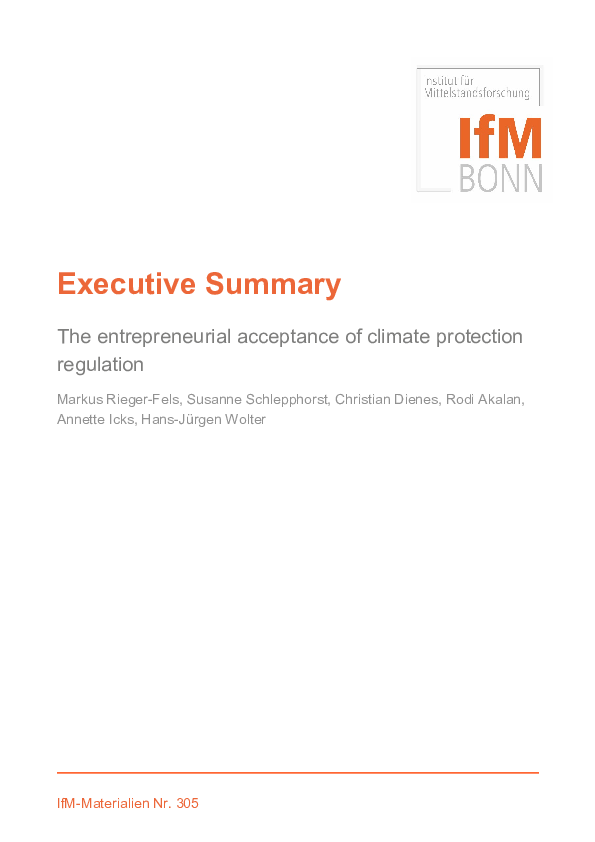
IfM-Materialien | 2024 Corporate acceptance of climate protection regulation
Politicians seek to advance climate protection with a series of regulatory measures. The effec-tiveness of these measures depends on the reaction of the regulated companies and thus on their acceptance of the regulation.
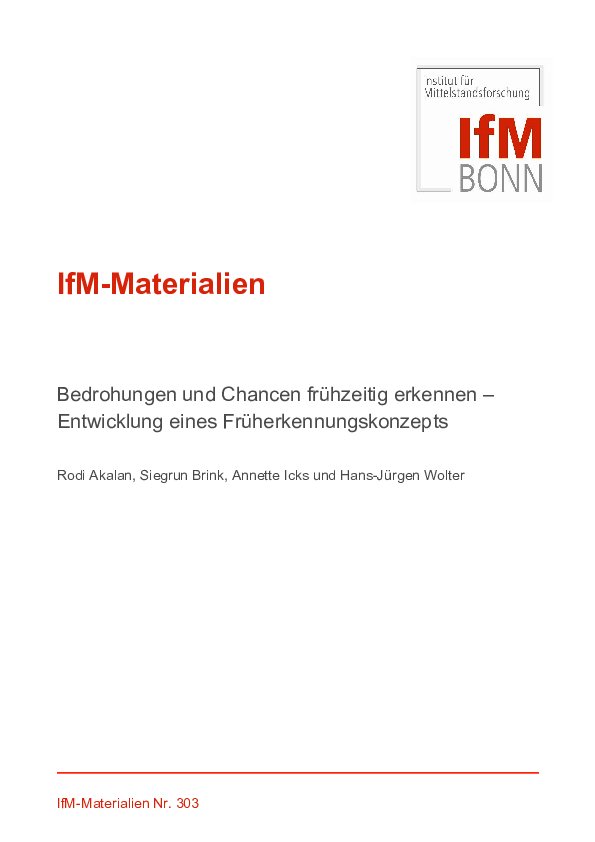
IfM-Materialien | 2023 Early detection of threats and opportunities – Developing an early detection concept
Currently, SMEs are confronted with several crises. The early detection of relevant threats and opportunities enables SMEs and economic policymakers to be prepared and set the appropriate framework conditions.
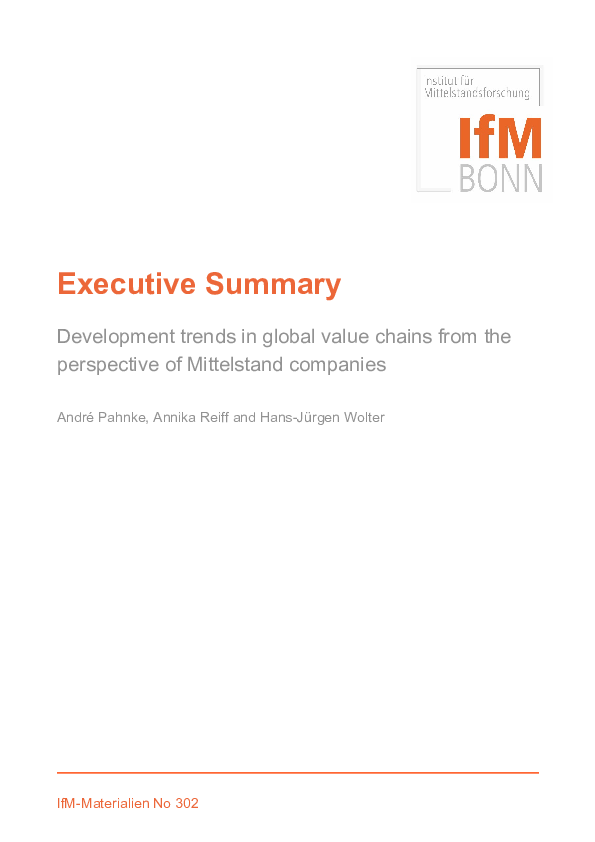
IfM-Materialien | 2023 Development trends in global value chains from the perspective of Mittelstand companies
The integration of German companies into global value chains also harbors the risk of adverse shocks from other economies being transmitted to Germany.
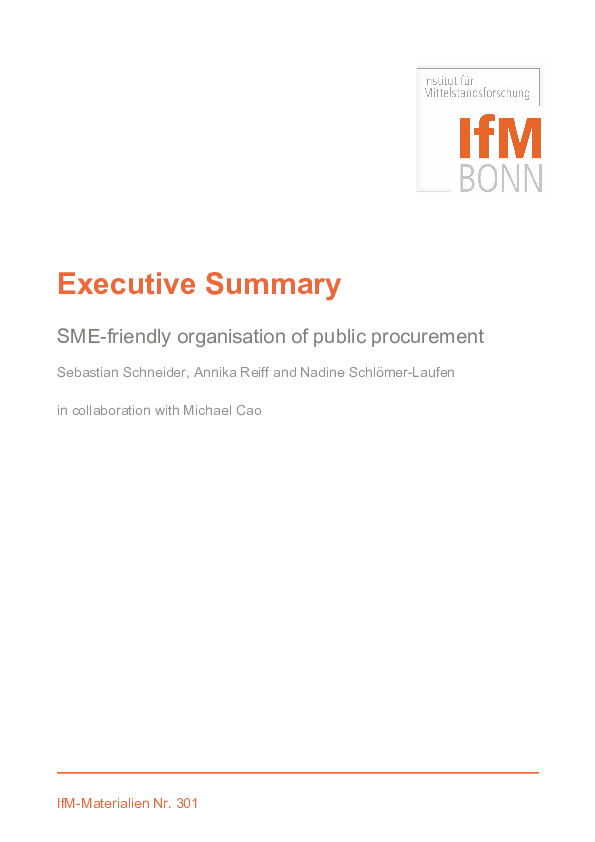
IfM-Materialien | 2023 SME-friendly organisation of public procurement
The German government would like to amend public procurement without raising the access barriers for SME.
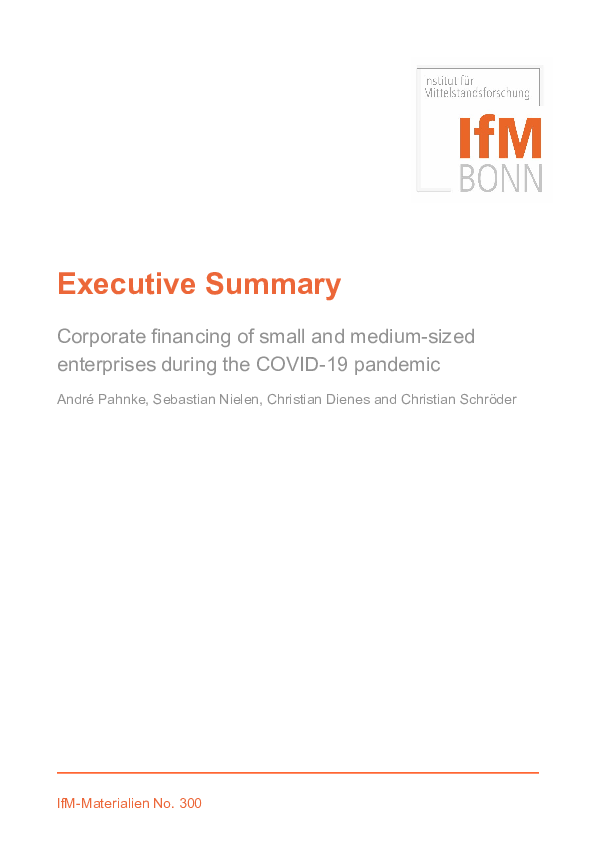
IfM-Materialien | 2023 Corporate financing of small and medium-sized enterprises during the COVID-19 pandemic
This study examines the possible impact of the COVID-19 pandemic on the financing of small and medium-sized enterprises (SMEs). At the beginning of the COVID-19 pandemic, we observe an increase in the number of SMEs with financing problems. This is true for SMEs in Germany as well as in other euro area countries.
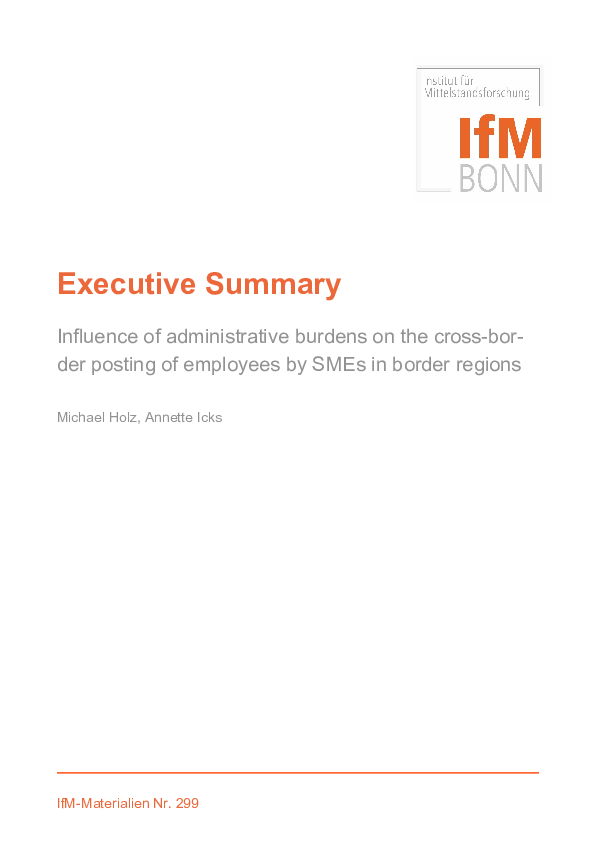
IfM-Materialien | 2023 Influence of administrative burdens on the cross-border posting of employees by SMEs in border regions
Based on interviews with companies and experts, the study examines the extent to which administrative requirements hinder or prevent the cross-border provision of services by German and Dutch SMEs in selected border regions.
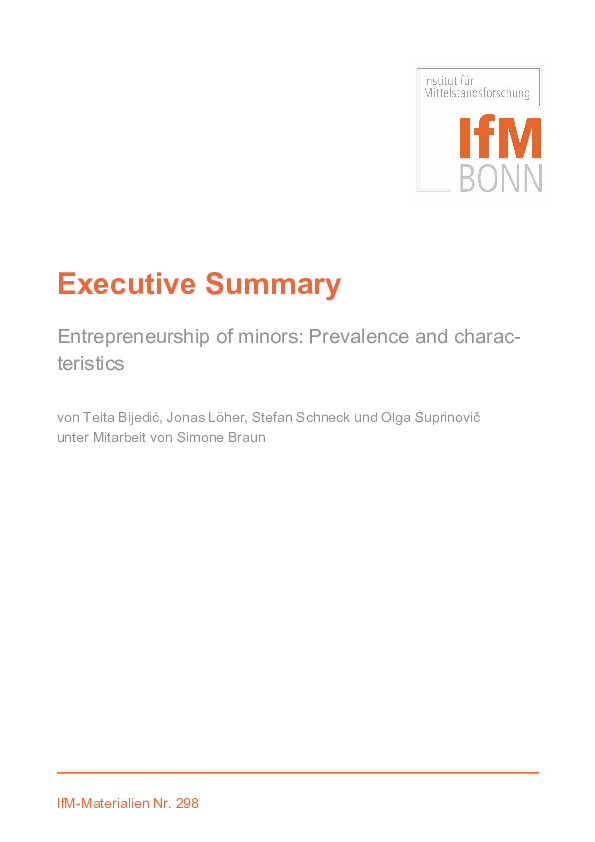
IfM-Materialien | 2023 Entrepreneurship of minors: Prevalence and characteristics
Diese explorative Studie beleuchtet erstmals auf Basis des Taxpayer-Panels sowie selbst erhobener Daten die unternehmerische Selbstständigkeit von Minderjährigen.
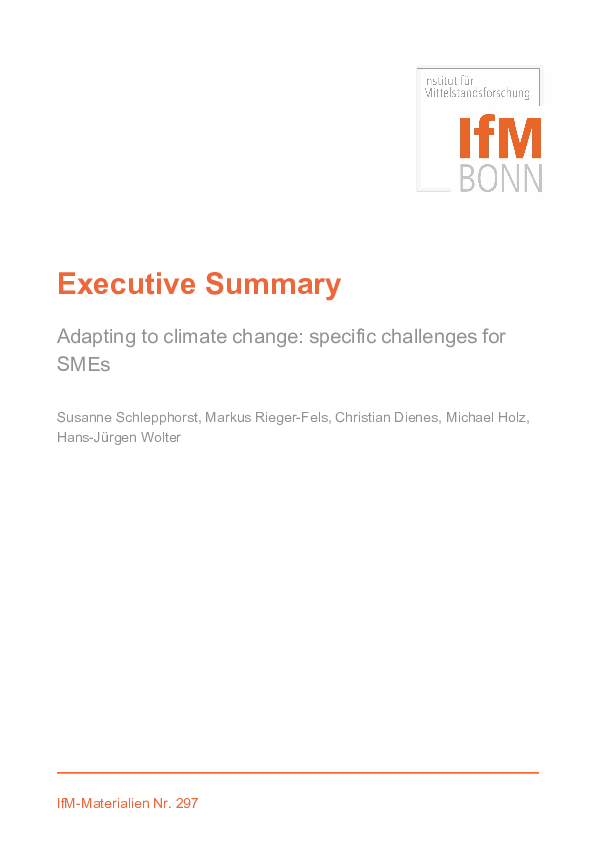
IfM-Materialien | 2023 Adapting to climate change: Exploring the specific challenges for SMEs
We investigate whether and how businesses perceive and adapt to climate change. Our survey results suggest that most German enterprises are aware of climate change and its consequences. The perception of climate risks is less driven by business size than by experience.
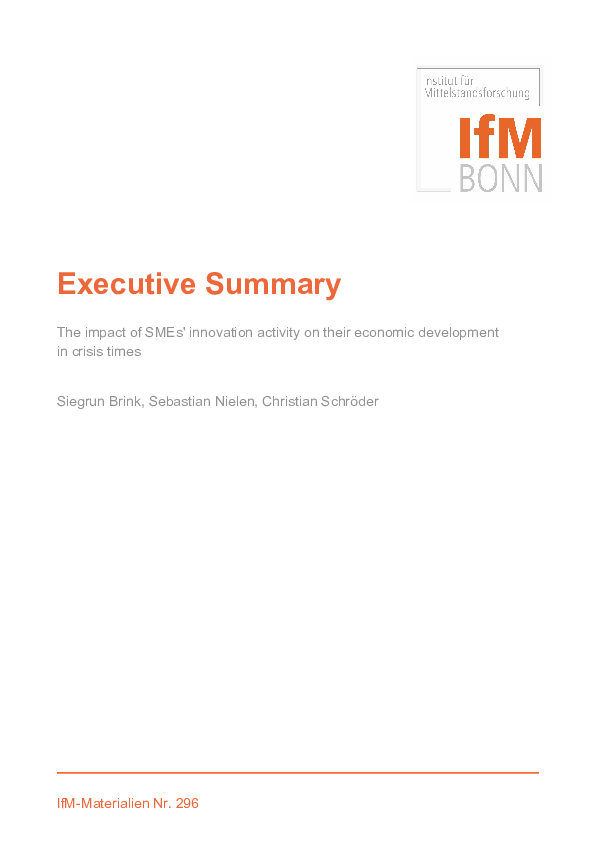
IfM-Materialien | 2023 Impact of SMEs' innovation activity on their economic development in times of crisis
Which role do innovations play when companies are confronted with a crisis? This study ana-lyzes whether innovative companies fared better than their non-innovative counterparts throughout the Corona pandemic.

IfM-Materialien | 2022 The EU's support measures for sustainable financing - implications for the Mittelstand
The EU Commission seeks to mobilize private funds for the sustainability transformation of the European economy through several regulatory measures. This study investigates the impact of this regulatory development on the German Mittelstand, i.e., owner-managed companies.

IfM-Materialien | 2022 Mittelstand businesses in the Covid19 pandemic – being affected by and dealing with the crisis
Based on the German Business Panel, the study examines how small and medium-sized en-terprises (SMEs) and Mittelstand businesses fared during the Covid-19 pandemic. It shows that SMEs as well as Mittelstand businesses were more strongly affected by the crisis than large and non-Mittelstand businesses.
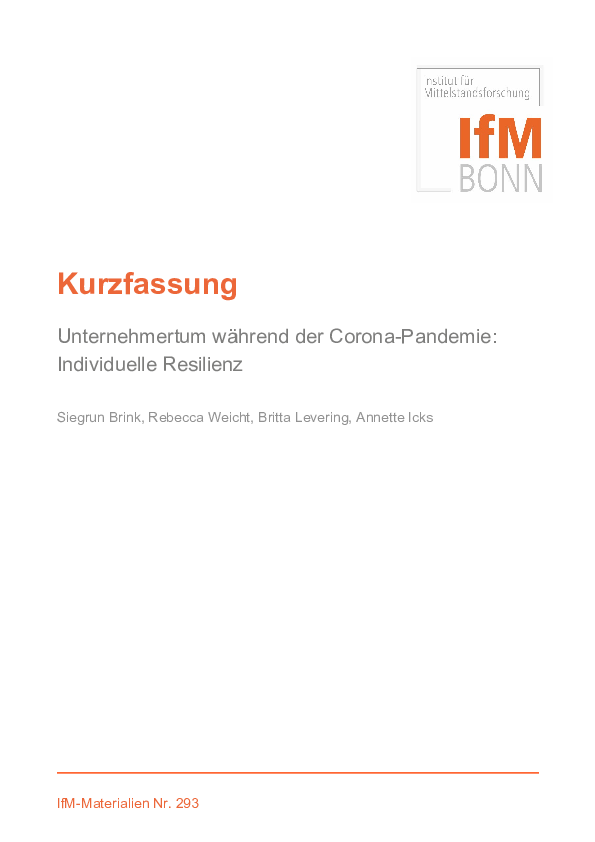
IfM-Materialien | 2022 Entrepreneurship during the Covid-19 pandemic: A focus on individual resilience
This study uses a systematic literature review to examine the extent to which an entrepreneur's individual resilience influences business development during the Covid-19 pandemic. It also considers which resilience factors are of particular importance.